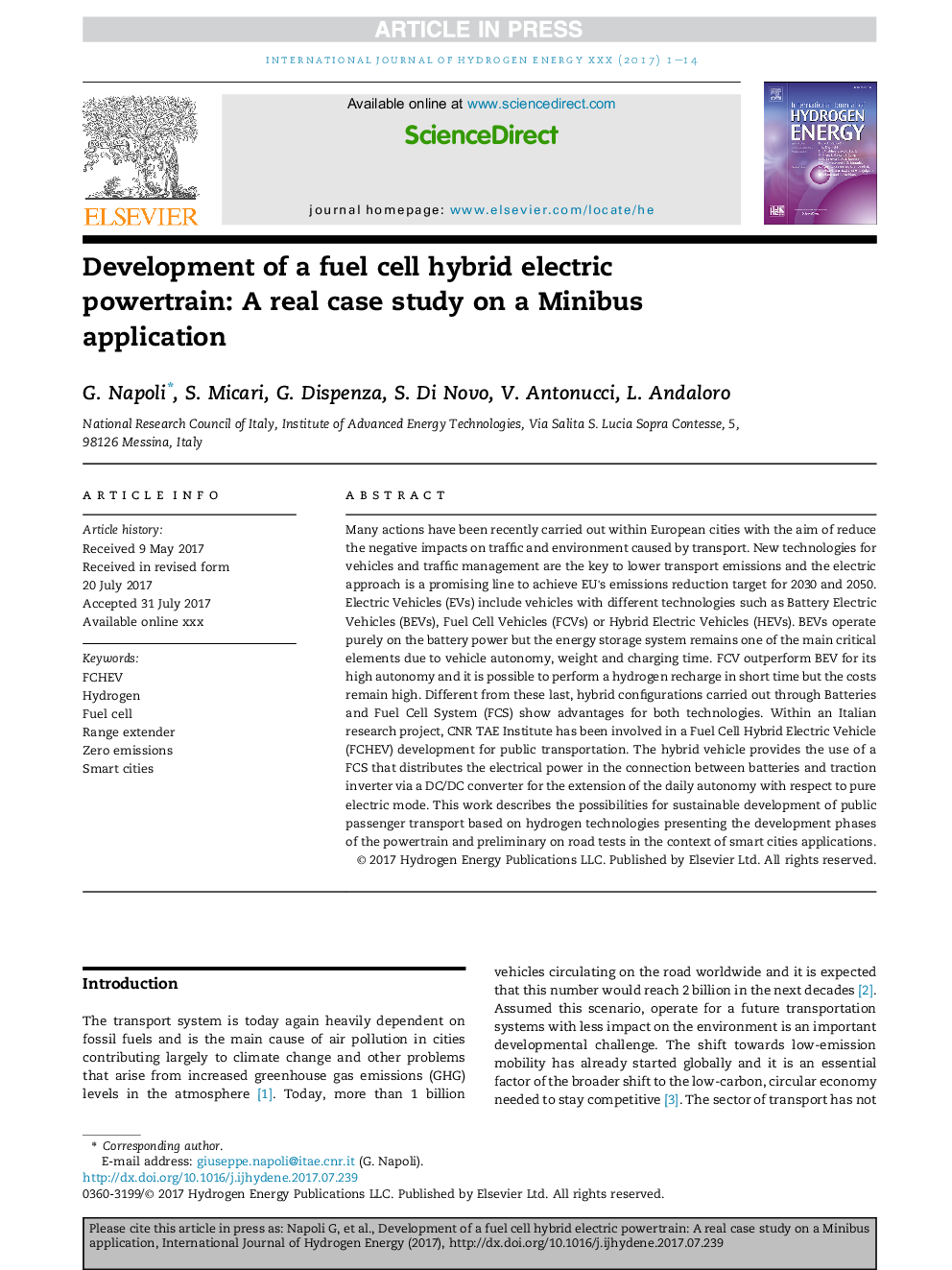| Article ID | Journal | Published Year | Pages | File Type |
|---|---|---|---|---|
| 7709452 | International Journal of Hydrogen Energy | 2017 | 14 Pages |
Abstract
Many actions have been recently carried out within European cities with the aim of reduce the negative impacts on traffic and environment caused by transport. New technologies for vehicles and traffic management are the key to lower transport emissions and the electric approach is a promising line to achieve EU's emissions reduction target for 2030 and 2050. Electric Vehicles (EVs) include vehicles with different technologies such as Battery Electric Vehicles (BEVs), Fuel Cell Vehicles (FCVs) or Hybrid Electric Vehicles (HEVs). BEVs operate purely on the battery power but the energy storage system remains one of the main critical elements due to vehicle autonomy, weight and charging time. FCV outperform BEV for its high autonomy and it is possible to perform a hydrogen recharge in short time but the costs remain high. Different from these last, hybrid configurations carried out through Batteries and Fuel Cell System (FCS) show advantages for both technologies. Within an Italian research project, CNR TAE Institute has been involved in a Fuel Cell Hybrid Electric Vehicle (FCHEV) development for public transportation. The hybrid vehicle provides the use of a FCS that distributes the electrical power in the connection between batteries and traction inverter via a DC/DC converter for the extension of the daily autonomy with respect to pure electric mode. This work describes the possibilities for sustainable development of public passenger transport based on hydrogen technologies presenting the development phases of the powertrain and preliminary on road tests in the context of smart cities applications.
Related Topics
Physical Sciences and Engineering
Chemistry
Electrochemistry
Authors
G. Napoli, S. Micari, G. Dispenza, S. Di Novo, V. Antonucci, L. Andaloro,
